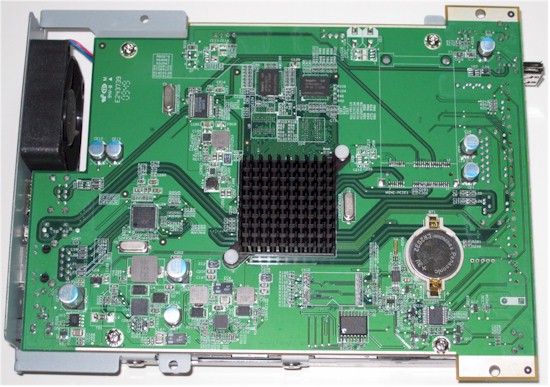The QNAP TS-110 Turbo NAS has been added to the NAS Charts.
The TS-110 is a single-bay NAS that supports up to 2TB 3.5" SATA drives, based on an 800 MHz Marvell "Kirkwood" SoC. Unlike most other QNAP NASes, the TS-110 doesn’t support 2.5" SATA drives.
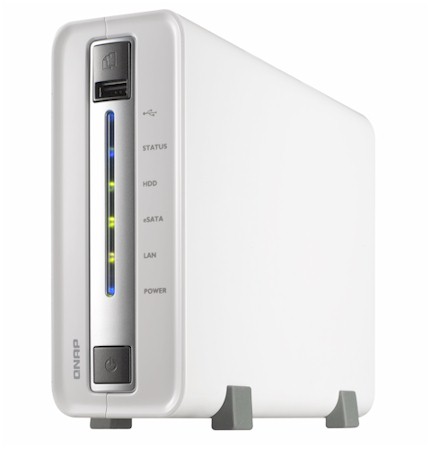
Figure 1 shows the indicators and ports, which include three USB 2.0, a single 10/100/1000 Ethernet port supporting up to 9K jumbo frames and a single eSATA port.
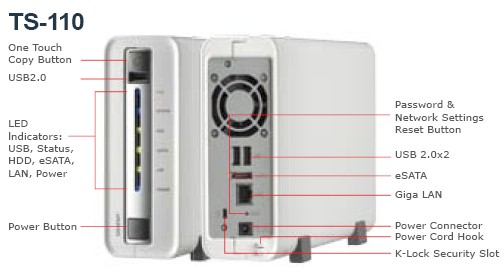
Figure 1: QNAP TS110 front and rear panels
As noted above, the TS-110 uses a 800 MHz Marvell "Kirkwood" SoC (88F6281) which is joined by 256 MB of DDRII RAM and 16 MB of flash. The inside view in Figure 2 shows the Marvell SoC covered by a finned heatsink. The RAM and flash devices are also in view, as is the Marvell 88E116R, which supplies the Ethernet port.
Figure 2: QNAP TS-110 board
With the fan, heatsinked processor and only a single drive, the TS-110 is very quiet with virtually no fan noise. I did not hear drive head chatter when the Samsung Spinpoint F3 1 TB (HD103SJ) drive that QNAP shipped with the unit for test was active. Power consumption measured 12 W with the drives spinning and 7 W with the drive spun down after a programmable idle period.
Like all QNAP NASes, the TS-110 supports QNAP’s entire Turbo NAS V3 feature set. Backup options include USB, rsync targets and Amazon S3, with FAT, EXT3, EXT4, NTFS and now HFS+ formatting options for attached drives. The TS-110 can also serve as Apple Time Machine storage. Media serving options include iPhone/Mobile access, Photo web server and UPnP / DLNA support.
Tests were run with 3.3.1 Build 0720T firmware using our standard test process. Write performance using iozone with a Gigabit LAN connection showed high write caching speeds. Write cache effects lasted up through the 256 MB RAM size, settling into a range of 84 – 47 Mbps from 512 MB through 4 GB file sizes. Read speeds had a slight falloff from the high to low 40 MB/s.
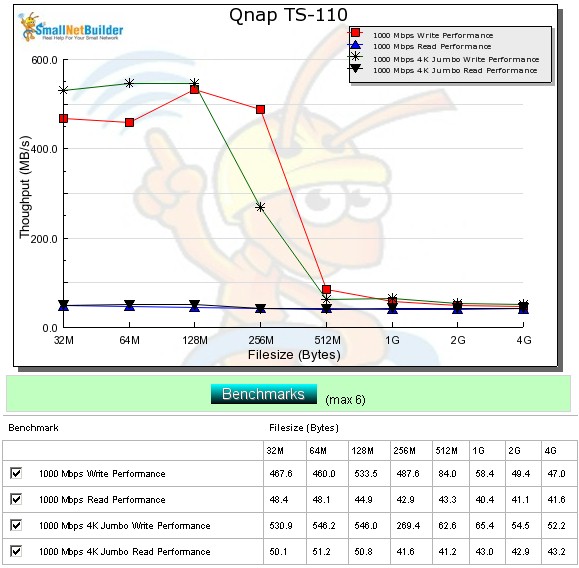
Figure 3: TS-110 throughput vs. file size
Average write performance using a Gigabit Ethernet connection measured 59.7 MB/s for file sizes between 32 MB and 4 GB, with cached behavior not included in the average calculation. Average read performance is significantly lower, measuring 43.8 MB/s.
File copy write speed measured 40 Mbps, as shown in Figure 5 below, with read doing a bit better at 45 MB/s, but ranking lower among current-generation single-drive NASes.
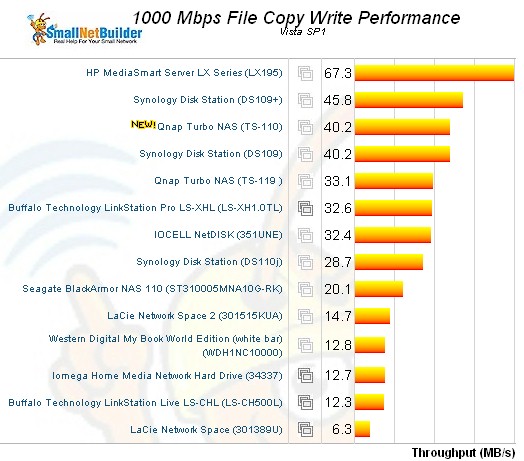
Figure 4: TS-110 file copy performance – write
I tested backup to an Iomega UltraMax Pro drive configured in RAID 0 connected via both USB 2.0 and eSATA. USB-connected backup went about as fast as the bus will support at 21 – 24 MB/s with the RAID 0 array formatted FAT, EXT3 and NTFS. With an eSATA connection, however, I measured 40, 40 and 28 MB/s for FAT, EXT3 and NTFS, respectively.
I also tested network backup to a QNAP TS-239 Pro II rsync target and measured 13.4 MB/s, which is 2 – 5 MB/s slower than comparable single-drive Synology NASes. But this difference isn’t significant enough to make much real-world difference in network backup speed. Finally, write and read speed to a 10 GB iSCSI target measured 33 MB/s and 38 MB/s, which are not too bad for a single-drive NAS.
Among single drive NASes, the TS-110’s most direct competition are Synology’s older DS109 and entry-level DS110j, which bracket it in price and performance. The DS110j is the TS-110’s most direct equivalent, with 800 MHz Marvell Kirkwood CPU, but 128 MB of RAM vs. the TS-110’s 256 MB. The DS109 differs only from the DS110j in using a 1.2 GHz Kirkwood CPU.
Using the Price vs. Performance Chart view, the DS109 and TS-110 are evenly matched for file copy write, but the DS110J and TS-110 are closer for file copy read.
If price is your primary factor, the DS110j would be your choice at (currently) around $140, followed by the TS-110 near $180, then the DS109 at slightly above $190. But note that the DS110j’s file copy write speed (28.7 MB/s) was significantly lower than the other two NASes (40 MB/s). No matter which you choose, you’ll be getting a nice, fully-featured BYOD NAS with 40 – 60 MB/s speeds.
QNAP’s feature set has been already covered in other reviews, so there won’t be a full review. You can always test drive QNAP’s feature set via their online simulator. So use the NAS Charts to further explore the TS-110’s performance and compare it to other products.

